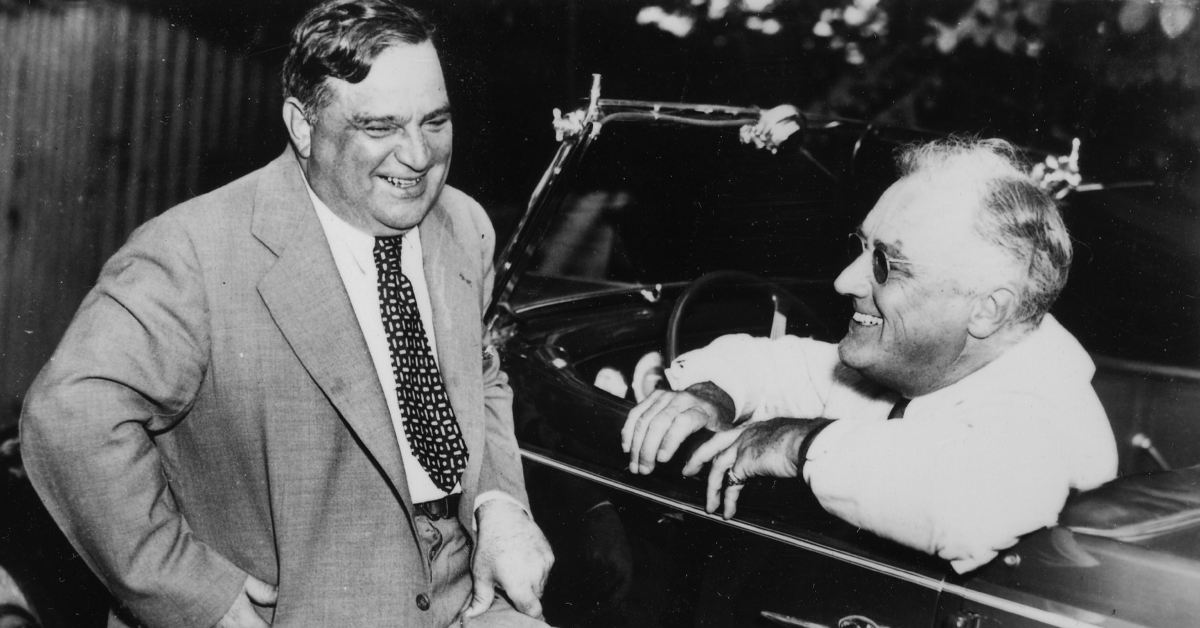Fiorello La Guardia was an influential Italian-American political figure, known for his dynamic leadership and significant contributions to American society. Born on December 11, 1882, in New York, he possessed a rich heritage that rooted him in both Italian and American cultures. His upbringing took an interesting turn when he spent his youth in Trieste, Italy, alongside his family.
La Guardia’s early career was marked by his involvement in diplomatic affairs. From 1901 to 1904, he served as an attaché at the American consulates in Budapest and Trieste, gaining valuable experience and insights into international relations. Continuing his commitment to public service, he became a consular agent in Fiume from 1904 to 1906, further honing his skills in diplomacy.
Returning to his birth city, New York, La Guardia embarked on a new chapter of his career. He worked as an interpreter at the immigration offices on Ellis Island from 1907 to 1910, where he aided in facilitating the entry of immigrants into the United States. This experience exposed him to the diverse array of cultures and backgrounds that comprised the American melting pot.
Driven by a desire to effect change, La Guardia pursued a legal profession, becoming a lawyer after his time at Ellis Island. However, his true passion lay in public service and politics. In 1915, he ventured into state politics as a member of the Republican Party, marking the beginning of a transformative political journey.
La Guardia During World War I
During World War I, La Guardia demonstrated his unwavering commitment to his country. He commanded an aviation school, where he played a crucial role in training aspiring aviators to support the war effort. His leadership and expertise led to the successful preparation of pilots who would later join the fight.
Following his service in the aviation school, La Guardia was appointed to command the American air forces in Italy. In this role, he played a vital part in coordinating military operations and supporting the Italian front. Additionally, La Guardia used his oratory skills to deliver persuasive propaganda speeches, rallying support and boosting morale among the troops.
La Guardia’s actions during World War I exemplified his courage, patriotism, and dedication to serving his country. His experiences in the military not only honed his leadership abilities but also deepened his understanding of the importance of international relations and diplomacy.
After the war, La Guardia’s political career continued to flourish. He served as a member of the House of Representatives from 1917 to 1921 and from 1923 to 1933, contributing to legislative efforts that aimed to address societal issues and promote progressive reforms. In 1919, he held the position of President of the Board of Aldermen (City Council) of New York, showcasing his ability to navigate municipal governance.
The La Guardia Legacy
La Guardia’s remarkable journey culminated in his election as the mayor of New York on November 7, 1933, and his subsequent re-election on November 3, 1937. As mayor, he implemented groundbreaking reforms and initiatives, transforming the city’s infrastructure, healthcare, education, and social services. His tenure as mayor solidified his reputation as a visionary leader, committed to improving the lives of everyday citizens.
La Guardia Airport
The decision to name one of New York’s major airports after Fiorello La Guardia was a tribute to the enduring impact and legacy of this remarkable political figure. The airport, known as LaGuardia Airport, is located in the borough of Queens and serves as a vital transportation hub for millions of travelers each year.
The process of naming the airport after La Guardia began shortly after his death in 1947. As mayor of New York City from 1934 to 1945, La Guardia had left an indelible mark on the city through his progressive policies and transformative initiatives. His commitment to public service, dedication to the welfare of New Yorkers, and visionary leadership had earned him widespread admiration and respect.
La Guardia was particularly known for his emphasis on modernizing and expanding New York City’s transportation infrastructure. During his tenure as mayor, he oversaw the construction of numerous highways, bridges, and tunnels, including the Triborough Bridge and the Lincoln Tunnel. These projects not only improved transportation efficiency but also bolstered the city’s economic growth.
Given La Guardia’s immense contributions to transportation development, it was fitting that an airport be named in his honor. The decision to designate the airport as LaGuardia Airport was made in recognition of his instrumental role in modernizing the city’s transportation system and making air travel more accessible to the people of New York.
LaGuardia Airport officially opened its doors in 1939, during La Guardia’s third term as mayor. The airport quickly gained prominence as a hub for domestic and international flights, contributing significantly to the city’s growing status as a global center of commerce and travel.
Renaming the airport after Fiorello La Guardia was not only a symbolic gesture but also a means of preserving his memory and legacy. It served as a constant reminder of his tireless dedication to public service and his transformative leadership, which had shaped New York City into the vibrant metropolis it had become.
Today, LaGuardia Airport stands as a testament to the enduring influence of Fiorello La Guardia and his vision for a modern, accessible, and thriving New York City. The name itself represents a connection to the city’s rich history and serves as a source of inspiration for all who pass through its terminals.
La Guardia An Italian-American Leader
Fiorello La Guardia’s contributions to American society, both during World War I and throughout his political career, are a testament to his unwavering dedication to public service and his ability to effect positive change. His legacy as a prominent Italian-American leader endures to this day, inspiring future generations to embrace diversity, prioritize public welfare, and work towards a better tomorrow.

